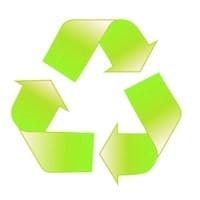GE released an industry white paper on “Addressing Water Scarcity in Saudi Arabia: Policy Options for Continued Success,” at the Water Arabia 2015 Conference & Exhibition held at Le Meridien Hotel in Al Khobar, Feb. 17 to 19, 2015.
The white paper highlights four major water reuse policy options to governments including education and outreach, removing barriers, incentives, mandates and regulations. GE also is showcasing its range of desalination and water reuse technologies at the exhibition.
Organized by the Saudi Arabian Water Environment Assn. and the Water Environment Federation, the Water Arabia 2015 Conference & Exhibition hosts international and regional experts who discuss the challenges, opportunities and trends in the water sector.
Co-authored by Colin Enssle, senior manager, Water and Process Technologies for GE Power & Water, and Jon Freedman, global government affairs leader, Water and Process Technologies for GE Power & Water, the white paper presents the water reuse landscape in the kingdom, the water reuse policy and regulations, a range of technology options to address water reuse challenges and success case studies from markets including Bahrain. It was presented by Freedman to industry experts and governmental officials on Feb. 18 at the conference.
“GE’s industry white paper, developed following extensive research of the kingdom’s water landscape, underlines our commitment to support Saudi Arabia in promoting water reuse, one of the strategies being adopted by the government to address increased demand,” said Heiner Markhoff, president and CEO, water and process technologies for GE Power & Water. “One of the challenges in implementing efficient water recycling and reuse programs is to find reliable data and information on policy options. The white paper presents strong policy options that are available to governments as well as how advanced technology platforms can help achieve the goal.”
According to research reports, Saudi Arabia aims to increase water reuse to more than 65% by 2020 and over 90% by 2040 by transforming its existing and planned wastewater treatment assets into source water suppliers across all sectors. Valued at over $4.3 billion by Global Water Intelligence (GWI), the kingdom’s water reuse market is the third largest in the world. More than $66 billion in long-term capital investments have been committed for water and sanitation projects in the kingdom in the next 10 years, while the government aims to achieve 100% reuse of wastewater from cities with 5,000 inhabitants or more by 2025.
“Our recommendations complement the recently launched National Water Strategy to address Saudi Arabia’s water challenges. With overall water reuse from treated wastewater at an impressive 30% to 40%, the kingdom has tremendous potential to enhance water reuse by over seven times to 241 million cu meters per year,” Freedman said.
The white paper highlights the water reuse patterns in the kingdom with agriculture accounting for the highest, followed by landscaping, industries and recreational purposes. GWI reports that water reuse will increase at a compound annual growth rate of 4% from 2,367 million cu meters per day to 5,834 million cu meters per day in 2035.
Water reuse is promoted in the kingdom through governmental decrees as well as the active participation of the private sector. The 9th Development Plan aims to increase treated wastewater reuse to 50% as one of its key goals. A new water law establishes a Supreme Council for Water Affairs and an independent regulator for water resources and water services and creates a water management department at the Ministry of Water & Electricity, which are among the projected policy goals in the sector for this year.
“GE’s white paper highlights many of the great steps the Kingdom of Saudi Arabia has already taken, and discusses four policy options that could serve as a valuable starting point to evaluate the appropriate mix of policies that best fit the kingdom’s needs going forward,” Freedman said.
The first recommendation on promoting education and outreach focuses on recognition awards and certification programs as well as information dissemination and educational outreach. Removing barriers highlights how financial, regulatory and technical barriers to reuse can be overcome. Incentives as a policy option evaluate the scope of direct subsidies, pricing mechanisms and structuring water rights, while mandates and regulations restrict potable water to human and food-related uses as well as encourage utility companies to develop plans for recycled water.
Source: GE


